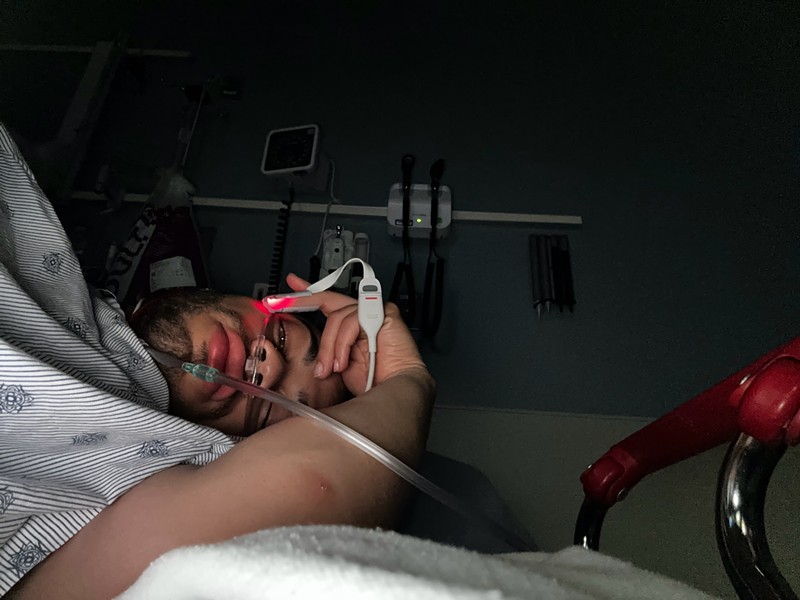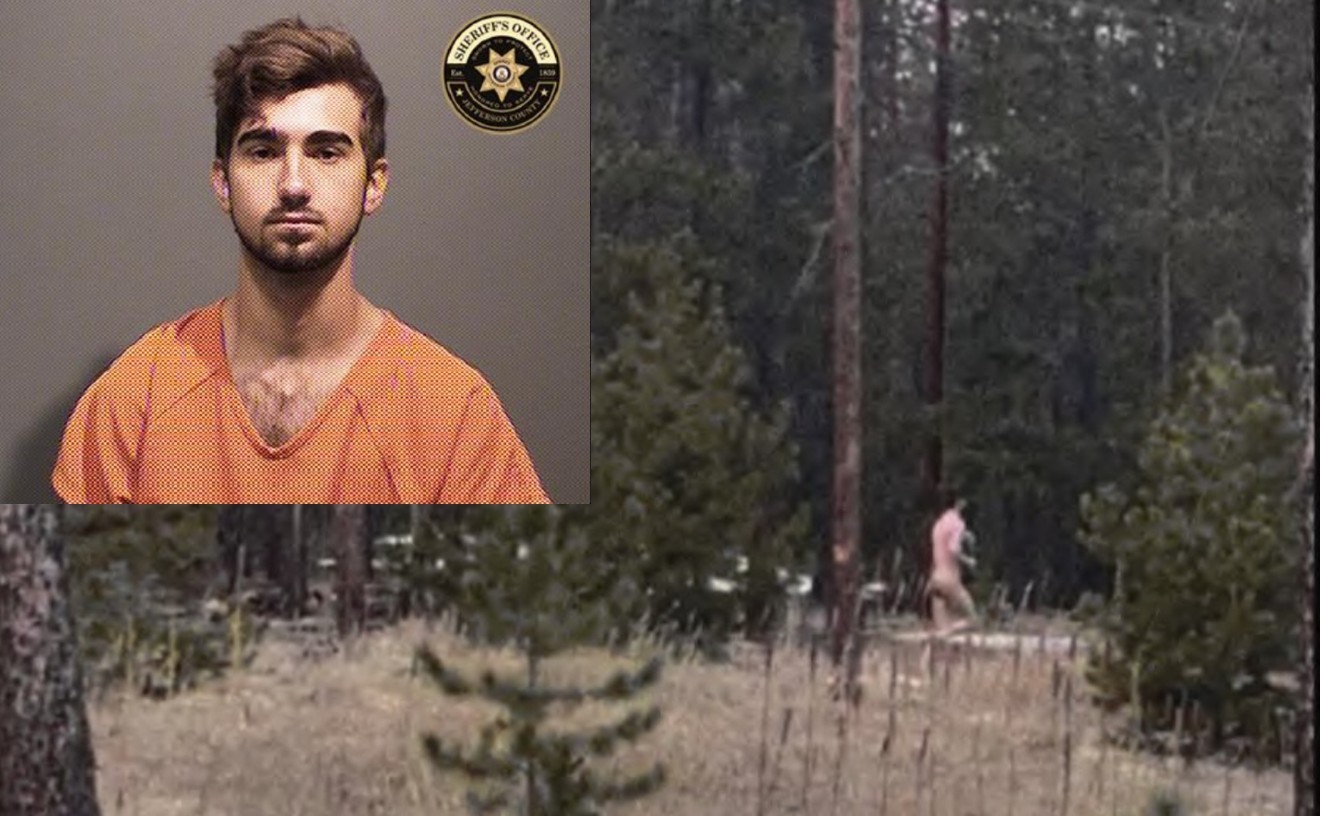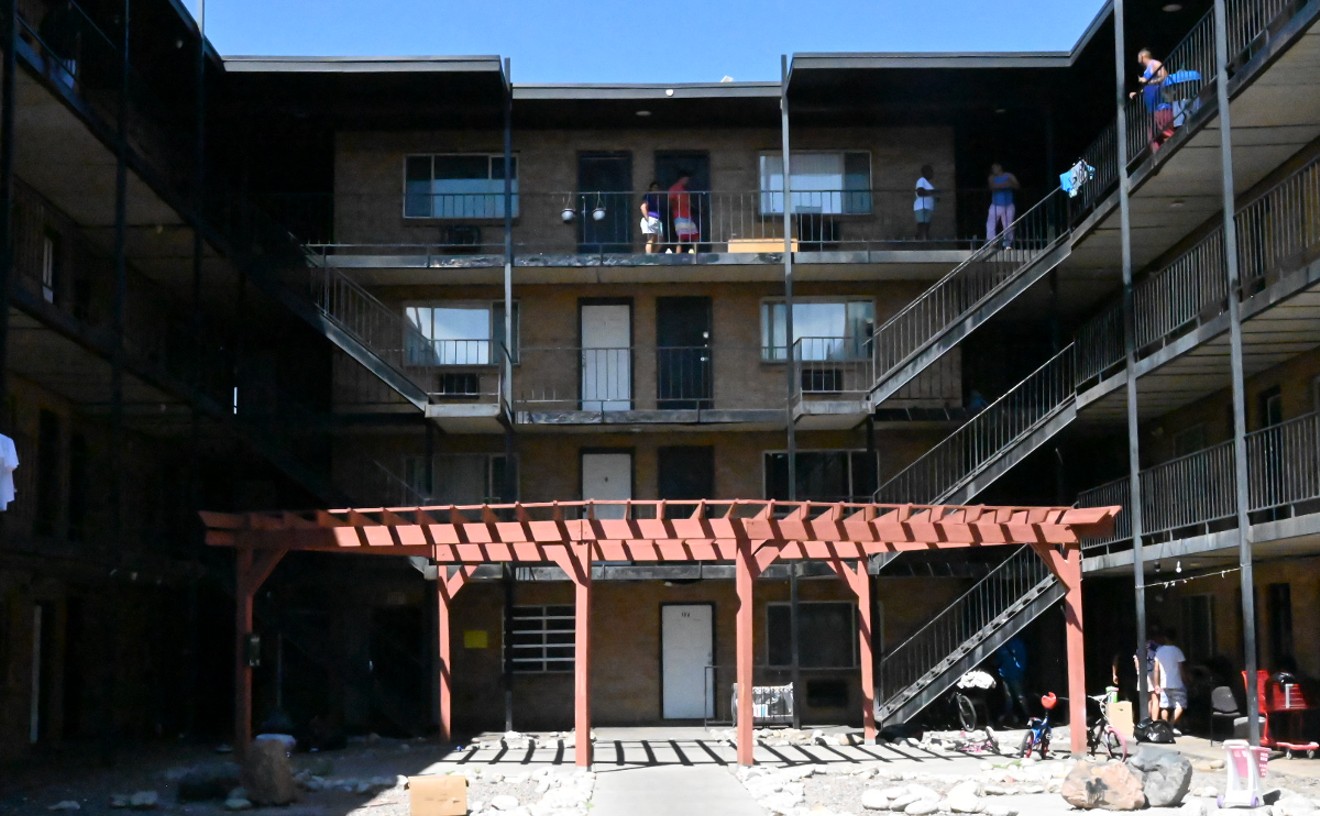According to a civil rights lawsuit filed in U.S. District Court for Colorado today, June 12, then-officer Adam Glasby threw Smith into the air and slammed him into the concrete head first, resulting in a traumatic brain injury with long-term effects. The lawsuit names Glasby, Hayter's and the City and County of Denver as defendants.
Smith was transported to the hospital by a friend and was diagnosed with a brain bleed and damage to the nerves in his shoulder as a result of the June 13 incident.
“Defendant Glasby never told Mr. Smith to freeze or identified himself as a police officer,” the lawsuit says. “The maneuver performed by Defendant Glasby resembled a professional wrestling ‘power-bomb’. Defendant Glasby’s dynamic tackle was wholly unnecessary.”
Smith was attempting to help a friend who had gotten into an altercation, and, according to one of his attorneys, Smith never saw Glasby as he was attacked from behind and then rendered unconscious.
“When he came to, he had no idea what was happening,” Smith's attorney, Mari Newman, says. “It was totally black; he couldn't see. There was just this kind of staticky ringing.”
Smith is represented by Newman and her legal partner, Andy McNulty. The case requests a trial and asks for a jury to determine an amount for damages for physical, mental and emotional distress and the ongoing decrease in Smith’s quality of life stemming from the incident. The lawsuit describes how Glasby allegedly did not ensure Smith received medical care that night, neglecting his duty to render aid.
“He couldn't walk without a cane for the first few months,” Newman says. “He had nerve damage that caused him to feel like he had pins and needles poking at him anytime he tried to shower or put on a shirt — even a soft T-shirt.”
Smith has undergone physical, speech and psychological therapy during his recovery process, Newman says; he now has PTSD and can’t be in crowds without being scared someone will randomly attack him, according to his attorney.
“He's just not the sparkling, vivacious person that he always used to be,” she says. “What’s most frustrating for him is he's a dedicated father. He's got four small kids that he loves and he loves to play with, but he just can’t engage in the same way that he used to be able to.”
Smith used to work in restaurants and hasn’t been able to return to work yet because of the physical and mental effects of his injury, Newman says.
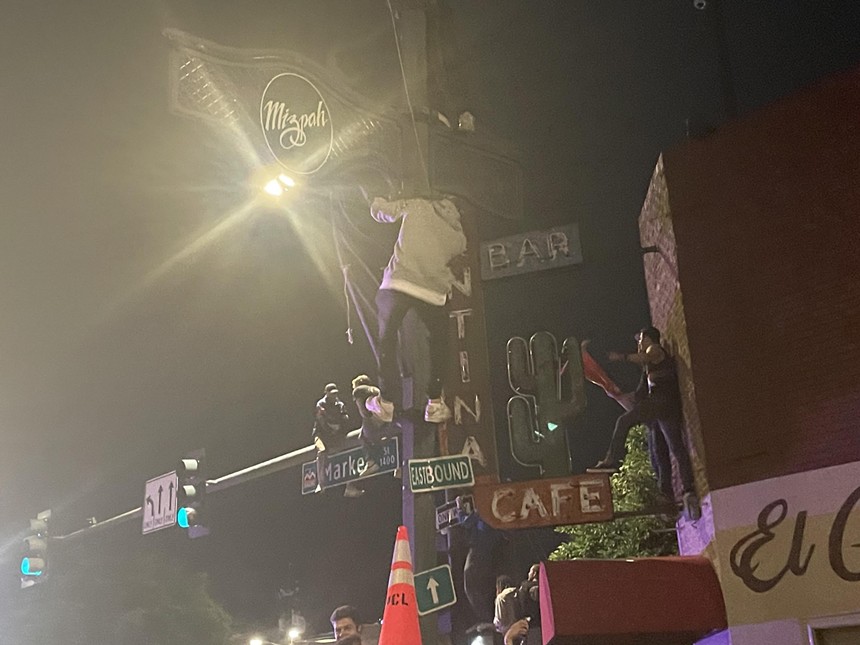
Crowds were rowdy the night the Nuggets won their first championship. This lawsuit alleges the DPD is inept at managing such crowds.
Catie Cheshire
Lawsuit Alleges Excessive Force, Lack of Police Accountability
On April 30, the Denver District Attorney’s Office announced that Glasby pleaded guilty to a misdemeanor of third-degree assault on Smith. The DA had originally charged Glasby with a felony. Glasby will serve two years of probation and can no longer work as a peace officer in Colorado.According to the DPD, Glasby resigned on May 2. Newman says that is good news, but argues that a civilian would never have been offered the same plea deal.
The civil rights lawsuit describes formal complaints filed with the DPD in 2018 and 2020 alleging that Glasby had used excessive force for which the DPD did not discipline him. The suit argues that the City of Denver and Denver Police Department’s lax discipline for police brutality in the past led to the moment that Glasby hurt Smith.
“Denver has a long and sordid history of condoning DPD officers’ use of excessive force,” the lawsuit says, citing poor police behavior during 2020 racial justice protests. “Denver imposed virtually no accountability for the officers who routinely violated protesters’ constitutional rights. … Against this backdrop, it is no surprise that Defendant Glasby thought he was allowed to slam Mr. Smith, headfirst, into the concrete.”
The lawsuit describes dozens of cases over the years where DPD officers injured people and were cleared by the department, even when courts levied monetary penalties against the officers, including during the events of the 2020 George Floyd protests, but also in other isolated cases throughout the past twenty years.
“The case is important for a number of reasons, but chief among them is the fact that Denver continues to allow its officers to engage in brutality," Newman says. "We will keep bringing these cases over and over and over to try to change them, try to force them to finally provide the training, supervision and discipline that's necessary."
Newman has a history of representing clients hurt by the justice system, including those held at Cuba's Guantanamo prison. She represented the estate of Elijah McClain, winning a $15 million settlement from the City of Aurora with her co-counsel.
Smith’s complaint also specifically lays out DPD’s alleged “custom and practice of indiscriminately using excessive force in a crowd control setting,” like the night Glasby body-slammed Smith when people flooded the streets to celebrate the Nuggets victory.
Throughout the lawsuit, nearly every case mentioned ends with a monetary settlement and Denver deciding not to discipline any officer for their actions.
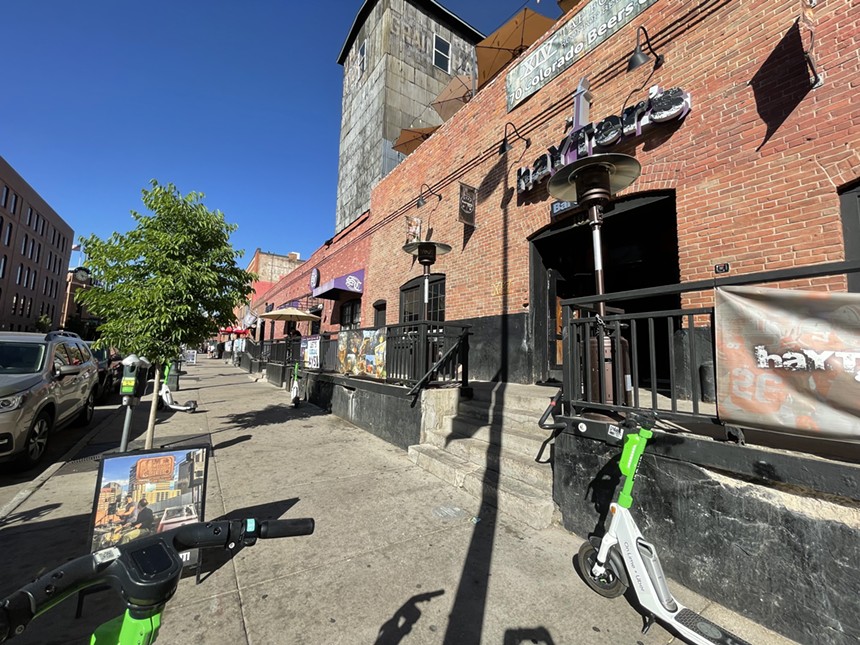
Hayter's & Co is where Adam Glasby was working the night of the altercation with Elijah Smith.
Catie Cheshire
The lawsuit also discusses three cases in U.S. District Court ending in determinations that Denver police used excessive force, including a jury trial in March 2022 brought by eleven protestors and Representative Elisabeth Epps, who alleged their constitutional rights had been violated by DPD officers during the George Floyd protests.
The jury found the city and DPD liable and awarded the plaintiffs monetary damages. According to the City Attorney’s Office, as of April 30, the City of Denver had paid nearly $14 million in settlements for personal injury or property claims related to the George Floyd protests.
Smith’s civil rights suit also cites a December 2020 Denver Independent Monitor report that found that DPD officers failed to warn people before dispersing crowds, fired pepper balls without proper protocol or training and lacked internal controls over use of force during 2020 protests.
The independent monitor report issued recommendations for future action — but according to the lawsuit, “DPD has not followed many of these recommendations and its failure to do so led to the violation of Mr. Smith’s constitutional rights."
“What's it going to take if a federal court finding, the independent monitor and a multimillion-dollar jury verdict doesn't convince Denver that it's time to change?” Newman says.
The DPD says it does not comment on pending litigation and is continuing to complete its internal investigation into the incident. The delay in that investigation is another issue, according to Newman.
“They won't provide the entire file until they complete the entire investigation, so that's one way that Denver and other municipalities try to avoid accountability by having these endless investigations that prevent the victim and the public from being able to get all of the information,” she says.
The defendants now have three weeks to respond to the legal complaint.
Hayter's did not reply to a request for comment. Glasby's attorneys could not be reached.

